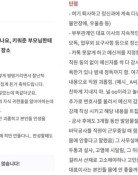Conglomerates Lose Ground
The dominance of the top 30 conglomerates in Korea has significantly declined, the Korea Economic Research Institute said yesterday in its report dubbed, Reducing economic dominance of conglomerates as percentage of the national economy.
According to a survey of 18,000 companies subject to external audit, the nations 30 largest business groups sales accounted for 35.6 percent of the national economy in 2005, compared to 59.7 percent in 1995, though the number of affiliates remained almost unchanged: 206 in 1995 and 218 in 2005. Their share of total assets to the economy also dropped from 34.1 percent to 19.2 percent and the rate of employment declined from 40.3 percent to 25.6 percent during the same period. Financial companies were excluded from the survey.
By size, the top four groups suffered the biggest sales drop from 40.5 percent to 22 percent. Those ranking fifth to 10th saw their sales proportion decrease from 14 percent to 10.1 percent. But those ranking below 10th experienced no major changes.
Korea now badly needs to foster global companies, but various regulations get in the way of their development, hampering national competitiveness and further growth, the report pointed out.
In 1987, when a system designating conglomerates groups was adopted, regulations were necessary to prevent companies reckless expansion through loans. However, those risks have largely gone. If anything, excessive regulations undercut the global competitiveness of domestic companies, said Lee Ju-seon, director in charge of corporate research in the institute. He added, The system and other regulations, such as the restriction that caps shareholding by big conglomerates in other firms, must be abolished.
changkim@donga.com







